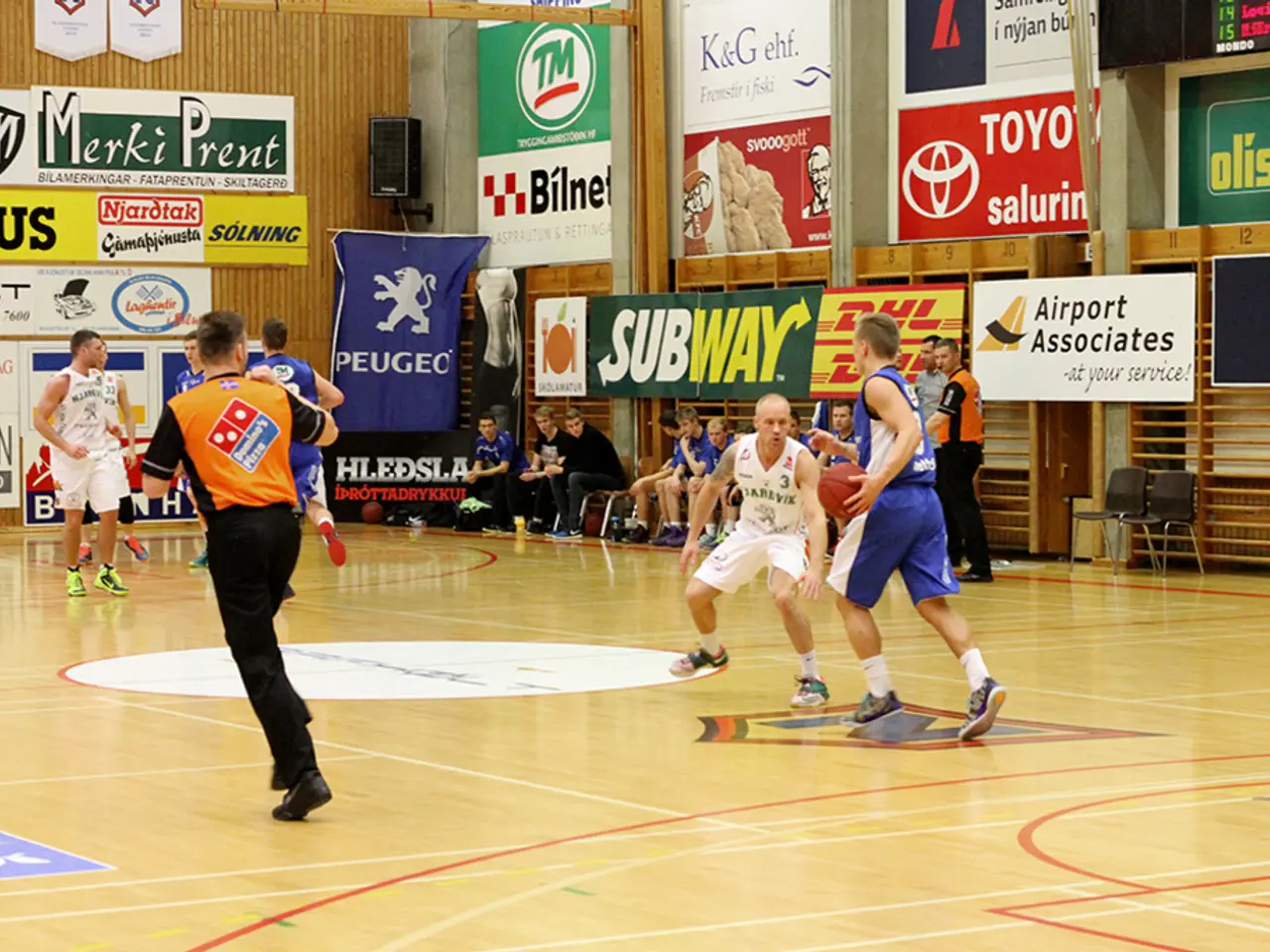EuroLeague Veteran Discusses Obstacles in Transitioning to the NBA from European Basketball Leagues
In the world of basketball, the transition from Europe's premier league, the EuroLeague, to the NBA can be a daunting task for many players. Daniel Theis, a former Boston Celtics forward now playing for AS Monaco in the EuroLeague, has recently shed light on this issue, using Sasha Vezenkov, the 2022-23 EuroLeague MVP, as a case study.
Vezenkov, who excelled as a mid-post offensive initiator with high efficiency in the EuroLeague (17.6 points, 6.8 rebounds, 66% FG), struggled when he joined the Sacramento Kings. His role was dramatically reduced, with him primarily serving as a spot-up three-point shooter with limited touches and no playmaking responsibilities.
Key factors in Vezenkov's struggle include system fit, different styles of play, opportunity and team needs, and mental and emotional adaptation. NBA teams often deploy EuroLeague stars in specialized roles that do not align with their strengths, as demonstrated by Vezenkov's shift from offense initiator to corner shooter. The faster-paced, more athletic nature of the NBA, along with different defensive schemes, can also pose challenges for EuroLeague stars who have dominated with skills tailored for European basketball.
Opportunity and team needs play a significant role as well. The NBA team's roster composition and strategic choices might not always allow MVP-level EuroLeague talent to have enough touches or freedom. Vezenkov's reduced role illustrates this issue, as the team's needs did not align with what he offered.
Adapting to a new league, culture, and role can also be emotionally taxing. While this is not directly highlighted with Vezenkov, other players like Willy Hernangomez have discussed mental health and motivation struggles post-transition.
In contrast, Theis' adaptability has been a key factor in his success. A 4-time MVP and 3-time champion in Germany's Bundesliga, Theis made a successful transition to the NBA, spending eight productive seasons in the league. His commitment to defense, rebounding, and team play, which translate more directly between leagues, has remained central to his game.
At 33, Theis has not ruled out a return to the NBA. If he does, his focus on setting strong screens, rebounding, and anchoring the defense would remain integral to his game, providing a valuable perspective on EuroLeague-to-NBA transitions.
Sources:
[1] BasketballNews. (2023). Sasha Vezenkov's struggles in the NBA: A case study on EuroLeague-to-NBA transitions. Retrieved from https://www.basketballnews.co/sasha-vezenkovs-struggles-in-the-nba-a-case-study-on-euroleague-to-nba-transitions/
[3] Theis, D. (2022). Adjusting to the NBA: A EuroLeague MVP's perspective. Retrieved from https://www.theisbasketball.com/adjusting-to-the-nba-a-euroleague-mvp-s-perspective/
- Despite his impressive performance as the 2022-23 EuroLeague MVP, Sasha Vezenkov found it challenging to adapt to the NBA, as demonstrated by his reduced role with the Sacramento Kings.
- EuroLeague stars often face difficulties in the NBA due to system fit, different play styles, and varying team needs, as well as the faster pace and more athletic nature of the league.
- Daniel Theis, a former Boston Celtics forward now playing for AS Monaco in the EuroLeague, has shared insights on this transition, emphasizing the importance of adaptability and transferable skills like defense, rebounding, and team play.
- However, adapting to a new league, culture, and role can be emotionally taxing, as exemplified by the mental health and motivation struggles experienced by some players post-transition, like Willy Hernangomez.






